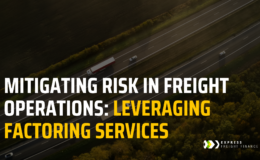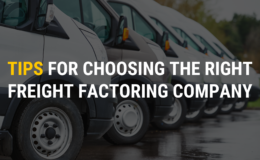Software as a Service (SaaS) is not a new concept. As segments of the economy move away from long-term contracts and services, many industries are trying to abstract the “as a service” concept to encompass everything.
The latest addition to the trend is truck as a service (TaaS), and it is poised to see sizable growth over the next few years.
Technology Leads the Way
Big logistics and transaction concepts, such as platooning and blockchain, are helping the shift to trucking as a service around the globe.
Both provide security and tracking on a large scale to move products across multiple destinations. A connected fleet, or even a single driver, can help streamline trucking and automate what was once a number of manual processes.
Freight brokerage, analytics, telematics, and more can be wielded by a lean and robust trucking company to great success. In 2018, North America led the world in what would be considered TaaS.
Pressures Influencing TaaS
As with most high-level market shifts, trucking as a service is being guided by a number of factors. In addition to the great advances in technology mentioned above, e-commerce is overtaking traditional shopping methods.
Major players in e-commerce, such as Amazon, handle shipping, which includes last-mile delivery. As drivers retire and turnover among younger drivers remains high, the pay-per-use model of TaaS will become more favorable.
Additionally, the growth of contract or owner-operators within the trucking industry over the past year has had larger companies consider trucking as a service.
All of these factors are creating an environment where TaaS is a viable evolution of the trucking industry as a whole.
Major players in the trucking industry, such as Volkswagen, Fleet Advantage, Daimler AG, and more, see great promise for the future of TaaS worldwide.
TaaS Won’t Happen Overnight
Truck as a service may show a lot of growth in submarkets, but expecting the entire trucking industry to shift to TaaS immediately is unlikely.
Agriculture, manufacturing, imports, and more are too reliant on standard transportation methods, and TaaS on that scale would involve the implementation of much more technology, as well as capital, to make it a reality.
Those looking to take advantage of the need for trucks as a service will need to do some deep market analysis to see if there is a long-term payoff or if this is simply a disruptive trend.







